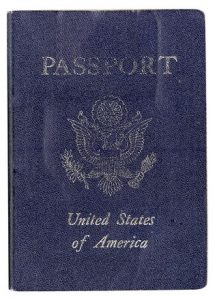[in Vietnamese]
Are you a U.S. citizen or a permanent resident who is trying to assist your family members in obtaining a visa so they are able to enter the United States and eventually become U.S. citizens? Do you have a family member who is a U.S. citizen or a permanent resident who wants to help you get a visa? Depending on the situation, a family member may be eligible for a family-based petition which would allow them to join their loved ones in the United States.
Or maybe you are here on a visa and you have recently married a U.S. citizen or a permanent resident? Depending on your visa, you may be eligible to adjust the status of it to a green card. If this situation applies to you, it is important for you to consider taking immediate action in considering an application for a green card and an adjustment of your status, since certain processing times vary and approval of applications by the USCIS are limited on an annual basis, depending on who is applying.
The first step in approaching a family-based petition is to determine if you fall into a category of persons who are eligible to file a petition. The USCIS has provided a list of which family members U.S. Citizens and Permanent Residents may petition for.
If you are eligible to file a family-based petition, or for an adjustment of your status, there are two forms that are common in both processes: Form I-130 and Form I-864. Some information about both of these forms is provided below:
 Form I-130: Petition for Alien Relative
Form I-130: Petition for Alien Relative
The first step is accomplished by completing and filing Form I-130. Form I-130 is the petition itself. In the petition, you must be able to evidence a legitimate relationship existing between yourself and the beneficiary of your petition. This is completed by providing supporting documentation, such as marriage certificates, evidence of shared assets, birth certificates, employment history, photos, etc. These documents are the best items to evidence the existence of a legitimate relationship.
Form I-864: Affidavit of Support
The U.S Government is concerned with individuals immigrating to this country and becoming primarily dependent on the government for support, so in order to alleviate the Government’s concerns about the beneficiary’s stability, Form I-864 must be completed and submitted to the National Visa Center after the petition is approved. This form is also submitted along with the application for a green card (Form I-485 discussed below). The petitioner must be able to show that he or she is able to financially support the beneficiary of their petition by providing copies of their tax returns, tax transcripts, income sources, and their income must exceed the applicable minimum threshold of the Federal Poverty Guidelines. Evidence of the petitioner’s financial stability strengthens the likelihood of a successful petition for an eligible beneficiary. Depending on the specific circumstances and how the questions are answered in the petition, additional documentation and evidence may be required of the petitioner when completing the I-864.
Form I-485: Application to Register Permanent Residence or Adjust Status
Form I-485 must be completed in order to acquire a green card or to adjust an individual’s status from a temporary visa. The USCIS has posted a list on its website, which contains the categories of people who may be eligible to adjust their status to permanent resident. There can be several forms which must be completed and filed along with, or separately from your application, depending on which eligibility category you fall under.
Applying for permanent resident status can be a long process and minor mistakes on your forms can cause costly delays and even a possible rejection of your application.
Be Mindful of “Unlawful Presence” While Considering Your Options
There is an important distinction to be drawn between being in “unlawful status” and being “unlawfully present” in the U.S. An individual whose visa or green card has expired may be in unlawful status but they may not necessarily be considered to be unlawfully present until the USCIS or an immigration judge makes a determination on the issue.
“Unlawful Presence,” as defined by the USCIS, applies to any time spent in the U.S. by a foreign national who entered the U.S. without inspection/admission or parole, or whose lawful immigration status has expired, was rescinded, revoked, or otherwise terminated. If you have a period of unauthorized stay in the U.S. you should seek the immediate assistance of an immigration attorney when applying for a green card.
There is one possible exception for people who are immediate relatives of U.S. citizens. If you are a U.S. citizen and your spouse has an expired visa, they may be able to adjust their status. If your spouse has resided in the U.S. for a period of more than 180 days beyond the expiration date of their visa and the USCIS has made a determination that he/she is out of status, it is important to seek the assistance of an immigration attorney, as a period of 180 days of unlawful presence is generally accompanied with penalties.
If you or someone you know plans to petition for a family member to come to the U.S. and you are a U.S. citizen, a Permanent Resident, or an Immigrant Visa holder looking for assistance on these matters, the Tran Law Firm is here to help with your inquiries. Contact us to set up a consultation and discuss your next best steps with a member of our legal team!
